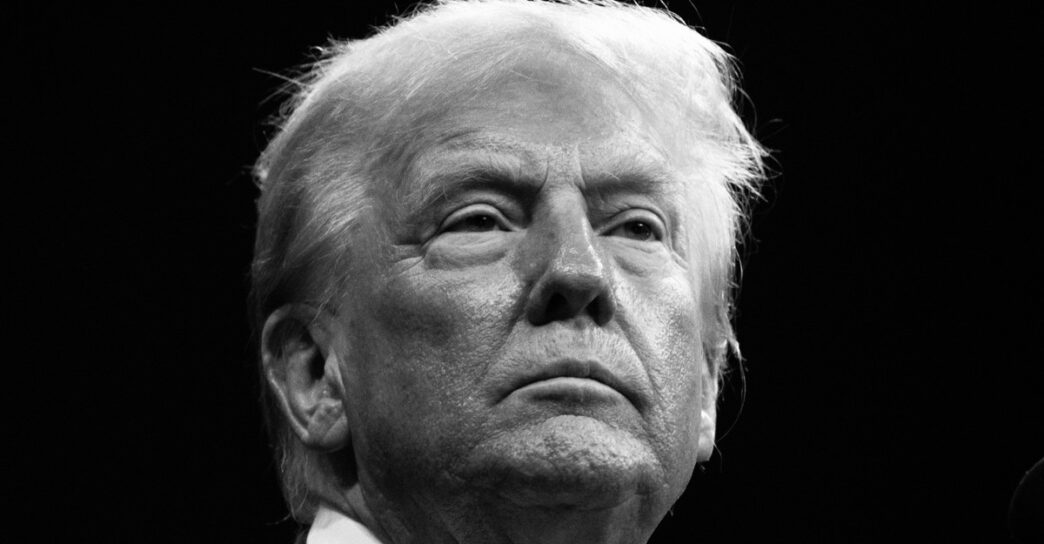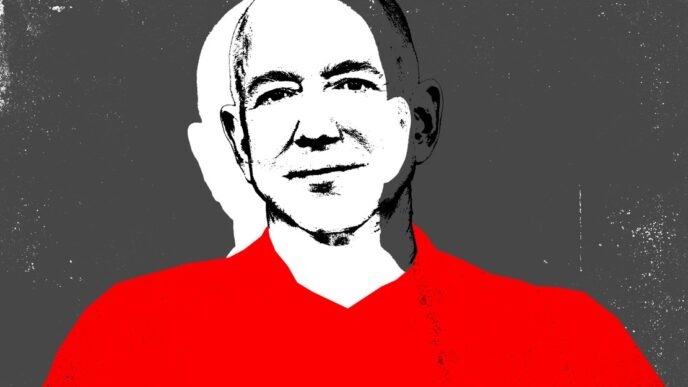This is an edition of The Atlantic Daily, a newsletter that guides you through the biggest stories of the day, helps you discover new ideas, and recommends the best in culture. Sign up for it here.
In The Atlantic’s June 2025 cover story, staff writers Ashley Parker and Michael Scherer report deeply into the start of Donald Trump’s second presidency. To me, the article is an exemplar of magazine journalism: They bring new information to light and also help make sense of how Trump came back from political exile. I spoke with Ashley and Michael to learn a little more about their reporting—and to hear the story of how Michael missed a middle-of-the-night phone call from Trump himself.
David A. Graham: So, what is it like to miss a call from the president?
Michael Scherer: I actually had my ringer on that night, because I thought in the back of my mind, It’s possible the president calls back. We should be ready for it. So I had it on and I heard nothing. I was in bed long before 1:28 a.m., when he called.
David: Trump keeps weird hours; how do you, as reporters, plan for that?
Michael: Well, obviously I didn’t do a great job of it! So much is unpredictable about this presidency that you just kind of roll with it. We had an interview canceled on us, interviews denied to us, and lots of steps in between, and ultimately, we got two interviews and time in the Oval Office with him. Nothing you think you know at any point about the process is necessarily set.
Ashley Parker: We did try to be strategic. We called him on the weekend. We were looking at the daily White House schedules and the pool reports. It sort of felt like being a stalker. You’re looking at, well, what did he do the night before? Is he going to be awake that next morning, and will it be early enough that he hasn’t left for the golf course yet? What is the prime moment?
David: The fact that he picked up a call from an unfamiliar number surprised me.
Michael: I think he does it. Other reporters have used this vehicle, but I think more often it’s not reporters contacting him—it’s CEOs, wealthy friends, donors. For decades, the phone was his instrument. He would sit at his office in Manhattan and work the phones, and that was his way of communicating with the outside world.
Ashley: He is such a creature of when he came up, in 1980s New York, where the magazine cover reigned supreme. I think he was intrigued by the idea of appearing on the cover of a magazine that he does not view as friendly. The Atlantic has written some very critical reported pieces on him, and the idea that we were coming to him and saying, We want to tell this very specific story of your comeback and how you are wielding the levers of power now to bend the country and the world to your will, and we want there to be a photo shoot and we want you to appear on the cover—I think in some ways it felt like one more thing he could try to conquer.
David: How is Trump different in private from the way the rest of the country sees him on TV?
Ashley: I think the way to understand Trump is that he is trying to win: the minute, the hour, the day, the situation, the person directly in front of him. So that doesn’t necessarily mean that in one-on-one situations he’s always charming, but he can be a consummate host. He can be incredibly charismatic. With me and Michael and Jeffrey Goldberg sitting in the Oval Office, when he’s trying to win us over and get us to see his point of view—he’s going to behave in a very different way than when he’s trying to win over a rally crowd who might want to see him heckle us or mock us.
Michael: And unlike other politicians or most people, there’s no contradiction for him between calling someone a “sleazebag” or a “lunatic” one day and being very charming the next day.
David: He also seems to view interacting with the media as a game: In his Truth Social post last week, he said he was doing the interview “out of curiosity, and as a competition with myself.”
Ashley: There was also a little bit of an element of “game recognizes game,” because he refers to Signalgate, and he mentions it was sort of a success. Jeff asked him, What do you mean, it was sort of a success? You mean it was a success because the story revealed flaws in the administration’s operational security that you have now taken steps to fix? Trump’s answer was so revealing. It was like, No, it was a success because you owned the news cycle. You broke through. That’s how he defines success.
David: When he turned down the interview, which he later granted, Trump sent you this quote via an aide: “I won the election in a landslide, and there isn’t anyone who can say anything about that. What can they write about?” He’s getting at something. Who doesn’t have a view of Trump by now? What is your role as Trump reporters in this term, where there’s so much going on every minute, and how do you combat the fatigue that might exist among readers?
Michael: Right now, many people consume political news in bites, and those bites don’t always add up to the full picture. We spent two months doing this story. We’re trying to paint a deeper picture of what led to Trump’s return, why it happened, who he is, and how he’s governing.
Ashley: I actually think that in some ways, journalism that goes deeper is more important with Trump. There is value in pulling all of these threads together and making a comprehensive product—that tells the American public something in a narrative way that they can understand, separate from, Oh my God, he Truthed this at 1 a.m. on a Sunday.














